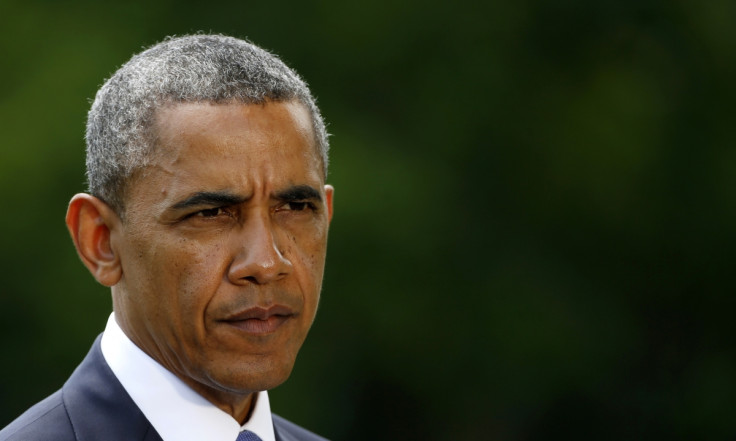Iraq Crisis: What Military Options Does Barack Obama Have Against Isis Insurgents?

US President Barack Obama has said that he is looking at "all options" to help Iraqi prime minister Nouri al-Maliki thwart the insurgency of the Islamic State of Iraq and the Levant (Isis) as they approach Baghdad.
"I don't rule out anything because we do have a stake in making sure that these jihadists are not getting a permanent foothold in either Iraq or Syria," he said.
"What we've seen over the past couple of days indicates the degree to which Iraq is going to need more help."
But what options are available to the White House Chief of Staff?
Boots on the ground
Obama has already ruled out sending US troops to Iraq after pulling forces out in 2011, when the Iraqi regime failed to guarantee the protection of American soldiers from charges while operating in the country. Whether al-Maliki's government would agree to this clause now is unclear.
What is clear is that Obama is looking to the Iraqi regime to take greater responsibility for its own security but he realises that assistance is needed in certain areas.
Surveillance flights
The US has already moved to increase unmanned surveillance flights over Iraq to obtain vital intelligence about Isis movements and to identify vital targets, according to defence officials.
Other non-combat support includes increased intelligence sharing with Iraq and more assistance with operational planning and advisory for top Iraqi military chiefs.
Airstrikes
This option remains on the table. USS George HW Bush is currently based in the Arabian Sea and may be sent to the Persian Gulf to strike Isis targets.
One stumbling block could be the Congressional approval that any potential airstrikes would require. Also, US military leaders are concerned that air strikes may not be taken advantage of by the Iraqi army, who have been deserting their posts in northern Iraq.
Cruise missile strikes
Two US destroyers equipped with Tomahawk missiles are currently stationed in the Persian Gulf while other destroyers and cruisers that could strike Iraq are based in the Mediterranean, Red and Arabian seas.
Drones
Unmanned predator drones, if utilised, offer the benefit of no US lives being lost. A full air assault requires Congressional approval while drone strikes do not.
The US has a network of drone bases in close proximity to Iraq, specifically Incirlik in Turkey, Udeid in Qatar, and al-Dharfa in the United Arab Emirates (UAE).
They also have bases capable of launching drone strikes in Kuwait (Ali al-Salem and al-Jaber airbases) and Oman (Seeb).
Special force advisers
US military planners have been drawing up an option to send special force advisers on the ground with Kurdish Peshmerga fighters, a defence official told the Wall Street Journal. This would improve the efficiency and capabilities of the Iraqi forces on the ground but will be viewed as a time-consuming measure.
Targeted Assassinations
As with Osama bin Laden, US special forces could launch covert attacks against high-level Isis targets such as Abu Bakr Al-Baghdadi, the man leading the Sunni insurgents, who is being called the next bin Laden.
While risky, striking Isis at the top of the organisation would hinder the group's cohesion and make al-Maliki's struggle to hold on to Baghdad much easier.
© Copyright IBTimes 2025. All rights reserved.






















